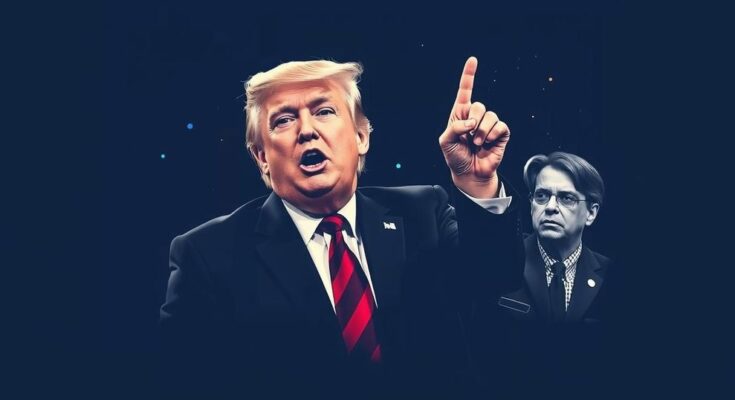Donald Trump’s recent election victory signals a return to unpredictable foreign policy, focusing on protectionism and potentially reducing support for allies like Ukraine. His promises indicate a shift towards isolationism and aggressive tariffs, raising concerns about global stability. Historical analyses suggest these changes may have profound implications akin to the Cold War, prompting nations to reconsider their alliances and strategies in a changing geopolitical landscape.
The recent election victory of Donald J. Trump has set the stage for another chapter of unpredictability on the global front. His administration is poised to reshape America’s foreign policy drastically, gravitating towards protectionism and a more isolationist stance. Trump has promised to terminate the ongoing conflict in Ukraine within 24 hours, a move that likely foreshadows a reduction of U.S. support for Ukraine, thereby favoring Russia. His administration is expected to adopt aggressive tariff policies, heightened demands from security partners, and a general retreat from addressing global challenges such as climate change, thus increasing tensions within the international community. Despite the turbulent implications of his first term, world leaders are characterized by a blend of concern and cautious optimism, with many hoping that existing bilateral relationships may remain stable. Historical perspectives suggest the potential consequences of these policies could rival the significant geopolitical shifts seen during the Cold War era. As emphasized by James Curran, a professor of modern history, “It accelerates the already deep trend of an America looking inward…they have to hope that America buys back in.” This acknowledgment underscores the critical nature of international alliances in an era dominated by uncertainty, reverberating through diplomatic circles worldwide.
The article is situated in a context characterized by heightened global tensions and significant political changes within the United States. Donald Trump’s previous administration was marked by a distinct shift in foreign policy that emphasized a unilateral approach over multilateral cooperation. His recent election victory suggests a continuation and intensification of these themes, particularly regarding economic policies and security alliances. Experts predict that such shifts may dismantle established international norms and challenge partners reliant on U.S. support.
In conclusion, Donald Trump’s re-election heralds another potential era of unpredictability in American foreign policy, characterized by increased protectionism and isolationism. His commitments to quickly resolve significant international conflicts and reevaluate America’s role in global alliances raise substantial concerns among allies and adversaries alike. The implications of his policies could reshape the political landscape reminiscent of the Cold War, compelling nations to reassess their diplomatic strategies in response to an uncertain American stance.
Original Source: www.nytimes.com




